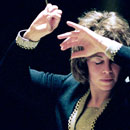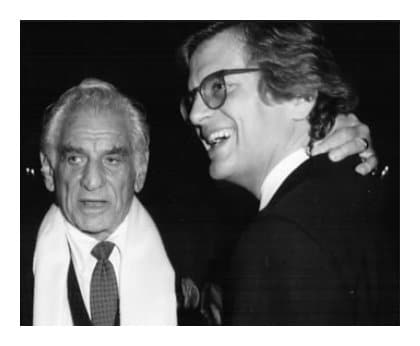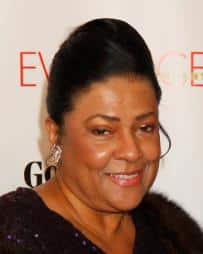The complete list of classical Grammy winners
mainAs not seen on television.
The value of classical has slipped so low it is now published beneath children’s recordings.
Does anyone suspect a slight California bias in the selections?
Production, Classical
73. Best Engineered Album, Classical
- Danielpour: The Passion of Yeshua
Bernd Gottinger, engineer (JoAnn Falletta, James K. Bass, Adam Luebke, UCLA Chamber Singers, Buffalo Philharmonic Orchestra & Buffalo Philharmonic Chorus)
- Gershwin: Porgy and Bess
David Frost & John Kerswell, engineers; Silas Brown, mastering engineer (David Robertson, Frederick Ballentine, Angel Blue, Denyce Graves, Latonia Moore, Eric Owens, Metropolitan Opera Orchestra & Chorus)
- Hynes: Fields
Kyle Pyke, engineer; Jesse Lewis & Kyle Pyke, mastering engineers (Devonté Hynes & Third Coast Percussion)
- Ives: Complete Symphonies
Alexander Lipay & Dmitriy Lipay, engineers; Alexander Lipay & Dmitriy Lipay, mastering engineers (Gustavo Dudamel & Los Angeles Philharmonic)
- Winner: Shostakovich: Symphony No. 13, ‘Babi Yar’
David Frost & Charlie Post, engineers; Silas Brown, mastering engineer (Riccardo Muti & Chicago Symphony Orchestra)
74. Producer Of The Year, Classical
- Blanton Alspaugh
- Winner: David Frost
- Jesse Lewis
- Dmitriy Lipay
- Elaine Martone
Classical
75. Best Orchestral Performance
- Aspects of America – Pulitzer Edition
Carlos Kalmar, conductor (Oregon Symphony)
- Concurrence
Daníel Bjarnason, conductor (Iceland Symphony Orchestra)
- Copland: Symphony No. 3
Michael Tilson Thomas, conductor (San Francisco Symphony)
- Winner: Ives: Complete Symphonies
Gustavo Dudamel, conductor (Los Angeles Philharmonic)
- Lutosławski: Symphonies Nos. 2 & 3
Hannu Lintu, conductor (Finnish Radio Symphony Orchestra)
76. Best Opera Recording
- Dello Joio: The Trial at Rouen
Gil Rose, conductor; Heather Buck & Stephen Powell; Gil Rose, producer (Boston Modern Orchestra Project; Odyssey Opera Chorus)
- Floyd, C.: Prince of Players
William Boggs, conductor; Alexander Dobson, Keith Phares & Kate Royal; Blanton Alspaugh, producer (Milwaukee Symphony Orchestra; Florentine Opera Chorus)
- Winner: Gershwin: Porgy and Bess
David Robertson, conductor; Frederick Ballentine, Angel Blue, Denyce Graves, Latonia Moore & Eric Owens; David Frost, producer (The Metropolitan Opera Orchestra; The Metropolitan Opera Chorus)
- Handel: Agrippina
Maxim Emelyanychev, conductor; Elsa Benoit, Joyce DiDonato, Franco Fagioli, Jakub Józef Orliński & Luca Pisaroni; Daniel Zalay, producer (Il Pomo D’Oro)
- Zemlinsky: Der Zwerg
Donald Runnicles, conductor; David Butt Philip & Elena Tsallagova; Peter Ghirardini & Erwin Stürzer, producers (Orchestra Of The Deutsche Oper Berlin; Chorus Of The Deutsche Oper Berlin)
77. Best Choral Performance
- Carthage
Donald Nally, conductor (The Crossing)
- Winner: Danielpour: The Passion of Yeshuah
JoAnn Falletta, conductor; James K. Bass & Adam Luebke, chorus masters (James K. Bass, J’Nai Bridges, Timothy Fallon, Kenneth Overton, Hila Plitmann & Matthew Worth; Buffalo Philharmonic Orchestra; Buffalo Philharmonic Chorus & UCLA Chamber Singers)

- Kastalsky: Requiem
Leonard Slatkin, conductor; Charles Bruffy, Steven Fox & Benedict Sheehan, chorus masters (Joseph Charles Beutel & Anna Dennis; Orchestra Of St. Luke’s; Cathedral Choral Society, The Clarion Choir, Kansas City Chorale & The Saint Tikhon Choir)
- Moravec: Sanctuary Road
Kent Tritle, conductor (Joshua Blue, Raehann Bryce-Davis, Dashon Burton, Malcolm J. Merriweather & Laquita Mitchell; Oratorio Society Of New York Orchestra; Oratorio Society Of New York Chorus)
- Once Upon A Time
Matthew Guard, conductor (Sarah Walker; Skylark Vocal Ensemble)
78. Best Chamber Music/Small Ensemble Performance
- Winner: Contemporary Voices
Pacifica Quartet
- Healing Modes
Brooklyn Rider
- Hearne, T.: Place
Ted Hearne, Steven Bradshaw, Sophia Byrd, Josephine Lee, Isaiah Robinson, Sol Ruiz, Ayanna Woods, Diana Wade & Place Orchestra
- Hynes: Fields
Devonté Hynes & Third Coast Percussion
- The Schumann Quartets
Dover Quartet
79. Best Classical Instrumental Solo
- Adès: Concerto for Piano and Orchestra
Kirill Gerstein; Thomas Adès, conductor (Boston Symphony Orchestra)
- Beethoven: Complete Piano Sonatas
Igor Levit
- Bohemian Tales
Augustin Hadelich; Jakub Hrůša, conductor (Charles Owen; Symphonieorchester Des Bayerischen Rundfunks)
- Destination Rachimaninov – Arrival
Daniil Trifonov; Yannick Nézet-Séguin, conductor (The Philadelphia Orchestra)
- Winner: Theofanidis: Concerto for Viola and Chamber Orchestra
Richard O’Neill; David Alan Miller, conductor (Albany Symphony)
80. Best Classical Solo Vocal Album
- American Composers at Play – William Bolcom, Ricky Ian Gordon, Lori Laitman, John Musto
Stephen Powell (Attacca Quartet, William Bolcom, Ricky Ian Gordon, Lori Laitman, John Musto, Charles Neidich & Jason Vieaux)
- Clairières – Songs by Lili & Nadia Boulanger
Nicholas Phan; Myra Huang, accompanist
- Farinelli
Cecilia Bartoli; Giovanni Antonini, conductor (Il Giardino Armonico)
- A Lad’s Love
Brian Giebler; Steven McGhee, accompanist (Katie Hyun, Michael Katz, Jessica Meyer, Reginald Mobley & Ben Russell)
- Winner: Smyth: The Prison
Sarah Brailey & Dashon Burton; James Blachly, conductor (Experiential Chorus; Experiential Orchestra)
81. Best Classical Compendium
- Adès Conducts Adès
Mark Stone & Christianne Stotijn; Thomas Adès, conductor; Nick Squire, producer
- Saariaho: Graal Théâtre; Circle Map; Neiges; Vers Toi Qui Es Si Loin
Clément Mao-Takacs, conductor; Hans Kipfer, producer
- Serebrier: Symphonic Bach Variations; Laments and Hallelujahs; Flute Concerto
José Serebrier, conductor; Jens Braun, producer
- Winner: Thomas, M.T.: From the Diary of Anne Frank & Meditations on Rilke
Isabel Leonard; Michael Tilson Thomas, conductor; Jack Vad, producer
- Woolf, L.P.: Fire And Flood
Matt Haimovitz; Julian Wachner, conductor; Blanton Alspaugh, producer
82. Best Contemporary Classical Composition
- Adès: Concerto for Piano and Orchestra
Thomas Adès, composer (Kirill Gerstein, Thomas Adès & Boston Symphony Orchestra)
- Danielpour: The Passion of Yeshuah
Richard Danielpour, composer (JoAnn Falletta, James K. Bass, Adam Luebke, UCLA Chamber Singers, Buffalo Philharmonic Orchestra & Buffalo Philharmonic Chorus)
- Floyd, C.: Prince of Players
Carlisle Floyd, composer (William Boggs, Alexander Dobson, Kate Royal, Keith Phares, Florentine Opera Chorus & Milwaukee Symphony Orchestra)
- Hearne, T.: Place
Ted Hearne, composer (Ted Hearne, Steven Bradshaw, Sophia Byrd, Josephine Lee, Isaiah Robinson, Sol Ruiz, Ayanna Woods & Place Orchestra)
- Winner: Rouse: Symphony No. 5
Christopher Rouse, composer (Giancarlo Guerrero & Nashville Symphony)





Were it not highly unlikely that Donald Trump has ever heard a note of classical music, one might suspect that he has been using his ‘down time’ in Mar-al-Lago to compile this ‘Make America great again’ list. Utterly ridiculous and hopelessly and transparently biased. Pfui.
Bringing up Trump again? What does this have to do with the Grammy Awards which have been dumbed down for decades. I suppose we can all look forward to a cultural renaissance now that we have in power the great patron of arts and his doctor wife from Delaware and a political party dominated by those at the grassroots who believe western art music is racist.
Trump has moved on – why can’t you?
Ives a winner? Who’s going to buy it?
Otherwise, the winners look pretty good in my opinion.
And to the storywriter: sorry, no disproportionate winners for Californians: Falletta, Brailey, Guerrero and more are from elsewhere.
Muti is sort of on the list not for his own merits, but thanks to the same superb sound engineers that he keeps trashing and disparaging. Haha how ironic.
I am.
Me too.
Me too.
Already did – it is a wonderful set.
That’s a lot of American winners.
It’s the Grammys. It’s a major achievement for anything from elsewhere even to get shortlisted.
Indeed. The Recording Academy is a U.S. institution. We don’t expect to see many American winners at the Victoires de la musique classique or the Juno Awards, do we?
Nominations are not hard to come by, if you know NARAL members.
While scrolling through the TV channels last evening I stumbled upon the Grammys ceremony and so decided to watch for as long as I could. So happens that a performance by a couple of female rappers with big rear ends was on and I could not believe the p-rn-graphic coarseness of their minor spectacle; not to mention that the music itself was miles beneath appalling. This on primetime when I am sure many parents and their children must have been watching. I complain often about the unprecedented decline of opera and classical music singing but the same applies to pop and rock music. The genres have hit rock bottom. And to think that Marilyn Horne was inducted into their Hall of Fame, for what it is worth, amidst all this decadence.
The New York Times has recently run several pieces telling us how wonderful this ‘music’ is. How could anyone possibly disagree?
Female rappers with big rear ends? I’m struggling to see what the problem is.
You ought to see for yourself what they were doing with them big rear ends (and just about every other body part, too) on prime time live TV. Only then will you earn the right to comment.
To me the biggest surprise and worst choice was Ives/the Dude as winner of Best Orchestral Performance. I would have chosen Copland with MTT/San Francisco or Mutti/CSO/ Shostakovich, who was not even nominated in that division. But Ives doesn’t sell so this was a “booster shot”.
Right. Call the CSO and ask them how much the Muti recordings on the CSO Resound label sold since he joined. All real blockbusters, including this one. Yes I am being sarcastic.
It has to do with the titles too (I am not talking about Baby Yar which is a great symphony). Everyone here knows Muti is terrified at the idea of recording the same repertoire he recorded back in the days with the Philadelphia. People would make comparisons and realize he is just the shadow of his former self (not to mention the “castrated” – pardon my language – CSO being the shadow of an orchestra with its own personality. And even few of those Philadelphia recordings will be remembered; arguably a few of the London Italian opera recordings will have some staying power)
He tries to record here in Chicago and typically blames the sound engineers for the poor outcomes.
What are you talking about? He single-handedly destroyed “the Philadelphia Sound” that was so carefully created by Stokowski and Ormandy. Since he left, they have gained back about half of it. He has no ear for color, like most conductors today. They all achieve a mid-level and little more. But then, the 20th century was all about the beauty of sound, of tone color, which had reached a peak, now its just about accuracy and technique.
Try learning about Ives and then listen to his music with open ears and an open mind. His music is 100 years old and still refreshing. Don’t let your prejudices get in the way of an opportunity to enjoy something quite beautiful. I would be happy to give you some musical landmarks that might make his music more accessible for you.
Pray tell how “musical landmarks” make an insurance salesman’s works more accessible? From Wikipedia: “His musical experiments, including his increasing use of dissonance, were not well received by his contemporaries.” Or by moderns either.
Plus, he stole from others. His Symphony No. 2, for example, goes well beyond musical ‘quotations’ and completely rips off other composer’s works.
There were far better people working in symphonic composition than him. He’s vastly overrated.
Ignoramus.
Normally I do not go in for simple name calling, but having read it several times, fflambeau’s comments are indeed ignorant in the extreme. Quoting Wiki is a tip off. I get it, he doesn’t like Ives. Next.
I believe a number of Ives pieces sell very well.
So what happened to the superstar Levit who was sure to take the show on the ceremony?
Apparently the whole of classical is so irrelevant it didn’t air.
At least Bang Bang had its 5 seconds of anonymity (they didn’t even say his name – it coul’ve been any studio musician accompanying Metallica, who I’m sure also don’t remember who he is)
One thing that happened was that Grammy nominators again misunderstood the meaning of “instrumental solo,” placing Levit at a disadvantage.
63rd CATEGORY DESCRIPTION GUIDE: Best Classical Instrumental Solo
For newly recorded solo performances with or without accompaniment. This category recognizes excellence in
classical instrumental solo recordings, including concertos and concerto -style works (including multi-instrumental
concertos).
It shows that NARAS corporately does not understand classical music. They simply cannot structure their own awards!
It’s always been as Chickenontherun describes. Anything unaccompanied or with a soloist (i.e. a concerto) is categorized as a “solo” album. There’s an argument to be made that they’re wrong, but it’s the way they’ve always done it.
Classical hasn’t aired on the main ceremony for years.
What happened to great song writing, great melodies? Now all you have to do is write about what you see happened in da street, put a chunk chunk chunk chunk beat behind it and you got best Grammy of the year lol.
Does everyone understand how albums get nominated for, and win, a Grammy?
The more I learned about it, the less I respected this show.
in the beginning was that pucking show-business…. and that show-business was with producers … and they made it so …. and then it was the turn of classical music business 😉 …. et cetera ….
Winning is far more about self-promotion and schmoozing than about artistic merit.
I do not but would like to know.
Producers and labels pay to join the NARAS (sorry, NARAL), and they can then submit nominations. I don’t know if a performer is allowed to join, which buggers the whole thing. It has traditionally had a lot to do with sales.
TO Basso Continuoso: thousands of performers, who are recording artists, are voting members of the Recording Academy (NARAS), so yes, performers are allowed to join and vote for Grammy nominations and awards.
I remember reading an article back in the1980s about the process, back when the Atlanta Symphony was winning Grammies every year.
In order to win, you need to get the most votes, obviously. In order to vote, you have to have been involved in a recording that year. Somebody figured out that classical recordings just don’t get that many votes overall — nobody but classical musicians knows much about classical music, so I guess they would just leave those categories blank, or vote for the most famous ones — so they got all the ASO musicians to enroll in the NARAS and vote for their own recordings. Those 100 or so votes were enough to tip the balance, and suddenly the Atlanta Symphony was winning a Grammy every year.
I posted this story once a couple years ago and was challenged to provide documented proof that this had happened. I don’t have any. As I said, it’s an article I remember reading back in the 80’s. I don’t even remember where — that far back, it could have been Stereo Review.
If the Grammy’s are as irrelevant to Classical music as some say they are, then the “California bias” is no more important than Grammophone magazine’s UK bias in its reviews.
Well deserved for my dear friend Chris Rouse. Everyone should listen to his Symphony no.6 as well. For insight into his composing process go to YouTube and search “Christopher Rouse composition masterclass”
The Grammy’s are an awesome barometer to know who the best and most expensive PR agencies are, and which genres they cover.
You can LITERALLY buy the nomination. Just a matter of how much one cares.
c-RAP music bumped CLASSICAL off the broadcasts many years ago. Talk about Cancel-Culture!~ It didn’t help my inferiority complex amongst peers. Life goes on… and on… down… as I age. (whatever…)
Apples or Oranges? How about Passion Fruits for a change !!
— « Who wants to listen to Ives » … ?
Why not ? Who wanted to listen to Mahler in the 1960’s ? ‘Noisy’ Beethoven around 1810 ?
– Avoid the Grammy’s, which ‘exploits’ instead of ‘explain’.
Please do not mention Ives in the company of immortals like Beethoven and Mahler. He was a major musician on two separate continents as early as 1900 or so.
I wonder how the Theofanidis Viola Concerto won when it was recorded in 2017 and written fifteen years before that.
Presumably it’s the release date, not recording date, that matters.
Having worked for years in that industry, i can tell you that classical music Grammy nominations are a farce, winner selection is a farce, and the award does nothing to enhance sales.
This is just too good:
The presenter, upon hearing Mr. Success (A.K.A: Igor) “”Was I the only one that wanted to kill himself during that piano solo? I bought a suit for this,” he joked. “I thought I was going to be on TV. I’m such a moron. I’m losing so much money.”
Can’t make this up!
https://www.foxnews.com/entertainment/bill-burr-controversial-2021-grammys-backlash-viewers-social-media
Congratulations to violist Richard O’Neill, beating three pianists and a violinist for the best instrumental solo Grammy. The Theofanidis is the greatest viola concerto you’ve never heard. Give it a listen.
But why was it up for an award this year, four years after it was recorded?
This was released August 1, 2020. Grammy entries are based on release date, not recording date. Give it a listen.
Sadly, even phrase “Greatest viola concerto you’ve ever heard” doesn’t say much…
I said it was “the greatest viola concerto you’ve Never heard.” Listen to it, it’s quite moving. The first movement has Native American references. The second is an Unanswered Question. Theofanidis was in Manhattan at the time of 9/11, and it changed the direction of the piece. The third movement quotes the Sikh who sang at the prayer service at Yankee Stadium on Sept. 24. The fourth movement is brilliant, along the lines of his Rainbow Body, one of the most performed contemporary American pieces. IMO, Theofanidis will be held in the same regard as Copland, Ives, and Bernstein.
Just as classical music doesn’t matter to the Grammys, the Grammys don’t really matter to classical music.
And only a small minority of awards made the broadcast; classical is hardly alone.
The problem is that winning a Grammy doesn’t even allow you to raise your fees. What good is it? And I have won them.
As I keep saying, we need to establish OUR OWN awards.
Are there ANY classical music recording awards that are worthwhile? Gramophone? Diapason? I expect all of them are influenced by marketing operations; and I wonder which of them have a significant impact on sales. Nonetheless, I peruse them to note recordings that might have escaped my attention or might otherwise pique my interest.
As for the Grammys, as irrelevant to the classical world as they are, this list of nominees and winners seems more laudable than usual for the last couple of decades.
As I understand it, Gramophone Awards have, or at least used to have, some effect on sales among core classical buyers; though that is a small market. I presume the same is true of the Diapason Awards in Francophone countries.
Where Gramophone Awards really can make a difference, especially for lesser-known performers, is in getting subsequent concert engagements. For instance, after the then-somewhat-obscure vocal ensemble Vox Luminis won Gramophone’s Record of the Year in 2012 for a (gorgeous) disc of 17th-century German funeral music (beating out Fidelio with Stemme and Kaufmann and the Beethoven and Berg violin concertos with Isabelle Faust and Claudio Abbado, among others), the number of bookings they got soared.
@Peter – same here. I didn’t know there was an MTT/SF recording of Copland’s 3rd. I only have the [later] Bernstein/New York recording and find it kind of tough going; this version sounds like it could have potential.
That Rouse 5th Symphony is a pile of shit.
Rob, you know what they say about opinions….
Well, the nominations and voting are all done by insiders, very secret and likely political, if not out-right corrupt. It is long past time we stop relying on Grammys for rewards and set up our own annual awards program, if there should even be such a thing. While the Grand Prix du Disque always seemed well chosen, notso the Grammys. Not ever. I have tried to get interest going, in Stokies, named for Stokowski, but it has not gone anywhere. Musicians are just too dang passive, never initiating anything, it seems. Everything must be done for them. Tonys are awarded by the acting community. Why aren’t we doing the same? Don’t tell me there’s a lack of money, because there isn’t. YoYo Ma could fund it all by himself.
And after another day, nobody will remember who won what, nor will they care.
Sounds like it came from a Beckett play… nothing to be done.